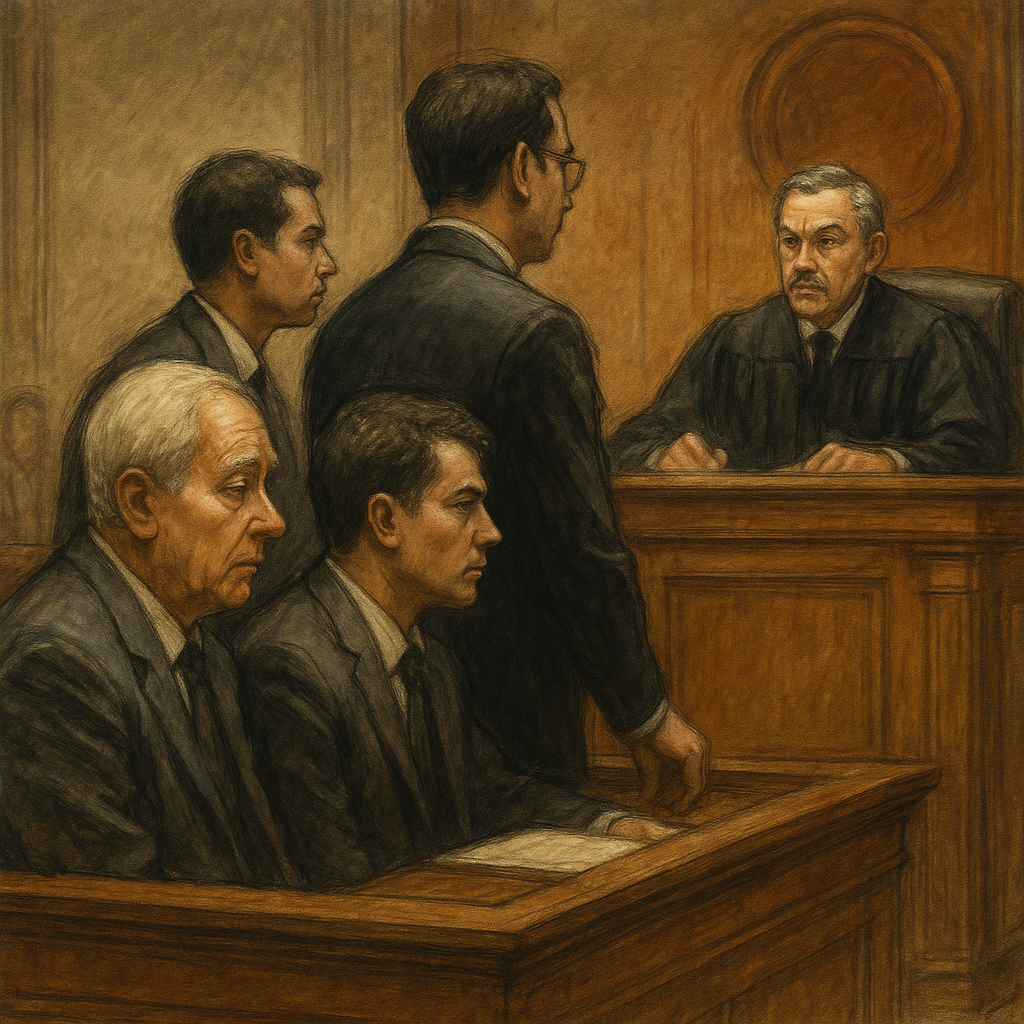Simplified Explanation of the Judgment
In a crucial ruling, the Patna High Court set aside criminal proceedings initiated against two former employees of a private company over a monetary dispute. The Court held that the facts of the case did not disclose any criminal breach of trust under Section 406 of the Indian Penal Code and that the matter was essentially civil in nature.
The petitioners had approached the Court seeking quashing of the cognizance order dated 17.09.2016 and summons issued against them by the Judicial Magistrate in Complaint Case No. 3495(C) of 2015. The case arose from a complaint filed by a private contractor who had executed a solar plant installation project for M/s Punj Lloyd Private Limited and alleged that around ₹10.75 lakhs remained unpaid.
Initially, the complainant had filed a complaint in the court, which was referred to police under Section 156(3) CrPC. The police, after investigation, filed a final report stating that no case was made out. The complainant then filed a protest petition, which was treated as a fresh complaint, leading to issuance of summons against the petitioners.
The complainant did not make the company M/s Punj Lloyd a party to the case. Instead, he accused two former employees who were working in managerial roles at the time of the project. The Court noted that there was no specific allegation that these petitioners were entrusted with any property or that they had misappropriated any money.
Importantly, Section 406 IPC requires a foundational allegation of entrustment and dishonest misappropriation — neither of which were present in the complaint or deposition. The Court observed that mere non-payment for civil contractual work does not constitute a criminal offence.
Relying on the Supreme Court’s decision in M/s Indian Oil Corporation v. M/s NEPC India Ltd. (AIR 2006 SC 2780), the Court reiterated that civil disputes should not be converted into criminal cases simply to exert pressure on the other party. It further emphasized that criminal law cannot be used as a shortcut to resolve monetary disputes arising from contractual obligations.
Accordingly, the High Court quashed the cognizance order and the revisional order affirming it, thereby allowing both the petitions filed under Section 482 CrPC.
Significance or Implication of the Judgment
This decision is significant for individuals and businesses engaged in commercial transactions. It underscores that breach of contract or non-payment issues must be addressed through civil remedies unless specific ingredients of a criminal offence are met. The ruling also discourages the misuse of criminal law to harass former employees or business associates when the actual grievance is of a monetary or contractual nature. It provides a clear precedent for invoking Section 482 CrPC to protect individuals from unwarranted criminal prosecution in purely civil disputes.
Legal Issue(s) Decided and the Court’s Decision
- Whether a complaint for non-payment under a business agreement can constitute an offence under Section 406 IPC?
- Court’s Decision: No. The essential ingredients of criminal breach of trust were not made out.
- Whether former employees can be held criminally liable in a private capacity for actions of their previous employer?
- Court’s Decision: No. There was no allegation of entrustment or personal gain.
- Whether criminal proceedings can be used to recover money arising from a civil contract?
- Court’s Decision: No. Such practice is an abuse of court process.
Judgments Referred by Parties
- State of Haryana v. Bhajan Lal, (1992) Supp (1) SCC 335
- M/s Indian Oil Corporation v. M/s NEPC India Ltd., AIR 2006 SC 2780
Judgments Relied Upon or Cited by Court
- M/s Indian Oil Corporation v. M/s NEPC India Ltd., AIR 2006 SC 2780
- G. Sagar Suri v. State of U.P., (2000) 2 SCC 636
Case Title
Rahul Siddhartha v. State of Bihar & Anr.
Pratyush Kumar v. State of Bihar & Anr.
Case Numbers
Criminal Miscellaneous Nos. 49848 and 30534 of 2018
Citation(s)
2020 (1) PLJR 218
Coram and Names of Judges
Hon’ble Mr. Justice Rajeev Ranjan Prasad
Names of Advocates and who they appeared for
- Mr. Saket Gupta, Mr. Prakash Kumar, Mr. Anurag Singh — for the Petitioner (Rahul Siddhartha)
- Mr. Vikash Kumar Sharma, Mr. Atul Chandra — for the Petitioner (Pratyush Kumar)
- Mr. Panchanand Pandit and Mr. Fahimuddin, APPs — for the State
- Mr. Pushpendra Kr. Singh — for the Opposite Party No. 2
Link to Judgment
https://patnahighcourt.gov.in/viewjudgment/NiM0OTg0OCMyMDE4IzEjTg==-5ZPjIUaBVDw=
If you found this explanation helpful and wish to stay informed about how legal developments may affect your rights in Bihar, you may consider following Samvida Law Associates for more updates.









